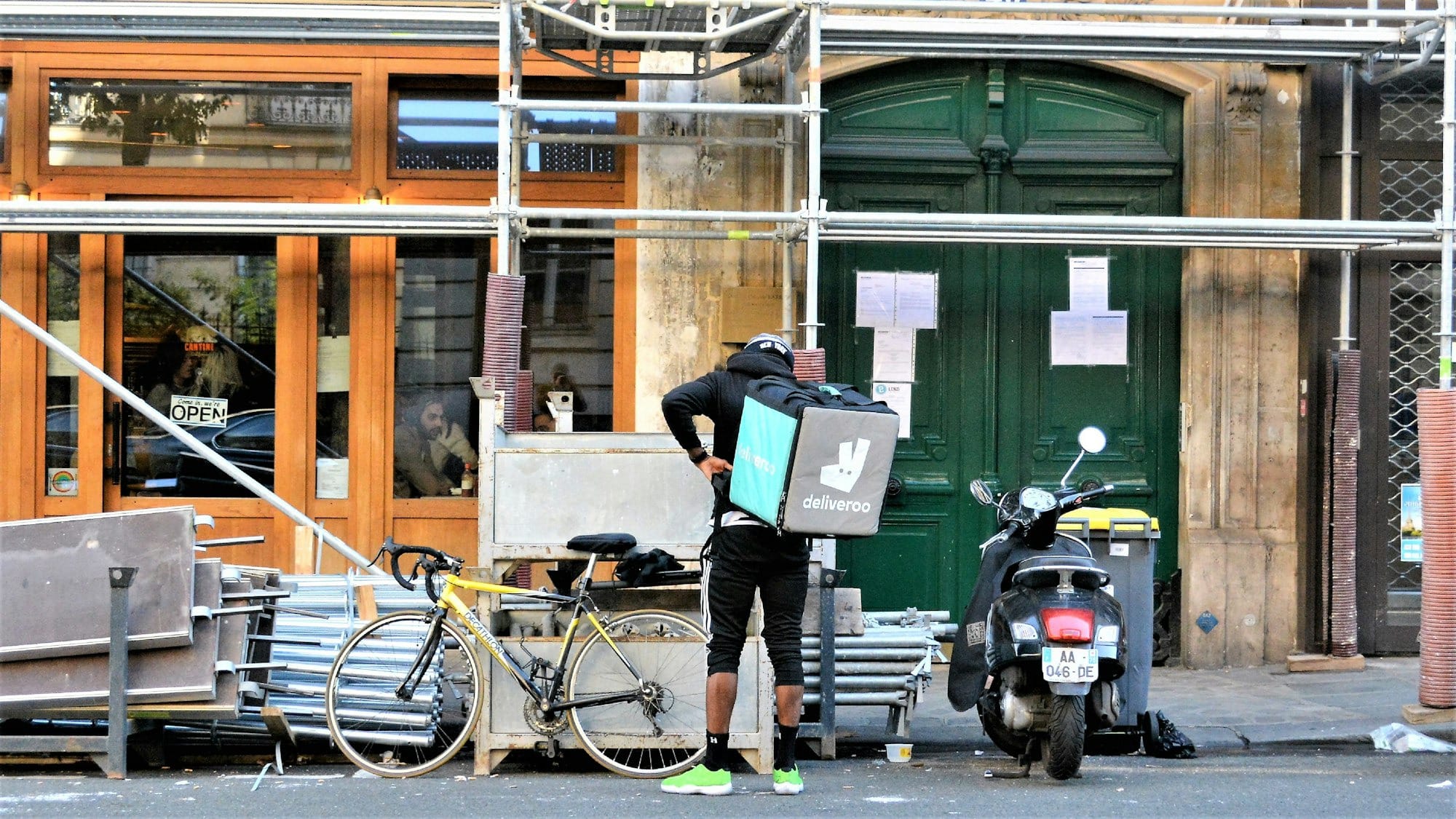Delivery apps are a lifeline for some, but the most vulnerable are being priced out
Food delivery apps have changed the way we eat at home, but at restaurant prices, leaving the most vulnerable priced out.

On the 4th August 2020, the UK's Competition and Markets Authority (CMA) approved Amazon's 16 percent investment in food delivery app, Deliveroo. The US retailer's investment comes after they shuttered their own equivalent service in 2018. The CMA stated that they believe the investment will promote competition, but three businesses currently dominate the market; Deliveroo, Just Eat, and Uber Eats.
The success of the on-demand delivery apps throughout the pandemic shows how critical the service can be when isolated or unable to leave your home. The growth of these services has been transformational for those who were already isolated, unwell, or housebound before the pandemic. Disabled and chronically ill communities have benefited enormously from the popularisation of on-demand delivery services.
But as competition reduces and large firms take investments, the prices have begun to rise. As a result, the pricing of these essential services has become exclusionary. Personal Independence Payments (PIP) are the primary disability benefit in the UK. Those eligible for support could be awarded up to £150/week, with the most severe impact on their daily lives. However, even at the higher end of the award, the cost of these delivery services is still prohibitive.
At the top end of the award, a claimant would only be entitled to £600 per month, but that level of PIP implies that their condition is so severe, they are unlikely to be able to perform daily tasks without support, like getting out of bed, dressing, or preparing food. As a result, they are most likely not in regular employment. So that £600 must cover rent, utilities, and groceries, in addition to any other expenditure.
For comparison, a meal for two ordered from Deliveroo can cost almost £60, depending on the restaurant, items, and delivery charges. In this case, that would be a tenth of a month's PIP income for a single meal. This is hardly economically viable. Of course, the same is also true for people on lower incomes, where the cost of a meal eaten at home has begun to reflect the price of dining at a restaurant.
In a market-based economy, pricing models reflect the demands of consumers. If app users are willing to pay high prices, then the businesses would be seemingly foolish to undervalue the service. Without entirely overhauling current economic thinking, there seems to be little that we can do to accommodate those with fewer financial resources to enjoy the benefits of home food delivery.
However, the UK's delivery marketplace issues are also partly attributable to a lack of competition — a problem effecting the smartphone market too.
Deliveroo is now part-owned by Amazon, the tax-avoiding corporate behemoth; Just Eat operates in over 10 countries; the ride-hailing firm Uber runs its Uber Eats food delivery platform. To differentiate between them, each company has established links to other major brands.
Just Eat has a stronghold over traditional takeaway businesses; Deliveroo focused on local restaurants and groceries; Uber partnered with international brands like McDonald's. As a result, they don't truly compete with one another. Instead, they are complementary services that you have to use to access a particular retailer or food establishment.
With the three large firms aiming for exclusivity rather than competition, they don't have any incentive to keep prices lower. The struggles that the Gig Economy workers these services rely on are well-documented. But, rather than address them empathetically, the apps have chosen a PR-focused approach.
To appear supportive of the workers, the delivery apps have added additional charges to make it seem like they will pay the drivers more. But, rather than take the cost themselves, they pass it onto the consumer. So, now there is a delivery fee, service charge, and you are increasingly pressured into adding a tip for your driver. You could end up paying around £10 in charges for an order, or up to 20 percent of the total price.
The businesses also put pressure on the retailers and restaurants, claiming service charges and a percentage of each order. Consequently, the fees you pay aren't even going to the local business but end up generating revenue for the app instead. The food providers are also told that their business will only be readily accessible, promoted, or placed near the top of search results if they offer a discount, further reducing their income.
If multiple services existed and already dominant businesses didn't own them, the competition would offer choice to retailers, reduce costs, and encourage innovation. These are problems across the industry, and the downsides apply to all app users and listed retailers. It's in everyone's interest to increase competition. However, it is crucial for vulnerable communities.
As many of us experienced during the pandemic, being housebound is not a carefree and enjoyable experience. Accessing nice food, groceries, and even perceived everyday items like coffee is beneficial and an enormous boost to your emotional well-being.
Instead of feeling isolated, you feel connected. Despite the majority of people in the country experiencing similar feelings since the start of 2020, it seems that the voices of those who can't just return to pre-pandemic conditions are being lost.

